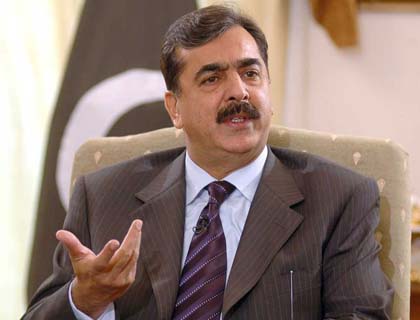ISLAMABAD: Pakistan vowed no more "business as usual" with the United States after Nato strikes killed 24 Pakistani soldiers, but stopped short on Monday of threatening to break the troubled alliance altogether.
Nato and the United States had sought to limit the fallout of Saturday's attack as Pakistan shut vital supply routes to the 140,000 foreign troops serving in Afghanistan and ordered a review of its US alliance.
Washington has backed a full inquiry and sent its condolences, while Nato chief Anders Fogh Rasmussen on Sunday voiced regret over the "tragic, unintended" killings, but did not issue a full apology.
In response Pakistan has dug in its heels, reacting furiously to what it called an "unprovoked" strike, worsening US-Pakistani relations already in crisis after the killing in May of Osama bin Laden north of Islamabad by US special forces.
In an interview with CNN, Prime Minister Yousuf Raza Gilani said incidents such as at the Nato cross-border attack further alienated the Pakistani masses, leaving his government isolated in its unpopular alliance with the US. "Business as usual will not be there, therefore we have to have something bigger so that to satisfy my nation, the entire country," he said in English.
Asked whether the US-Pakistani alliance can continue, he replied: "That can continue on mutual respect and mutual interest", adding that both were currently lacking.
"If I can't protect the sovereignty of my country how can we say it's a mutual respect and mutual interest?"
It remains unclear what happened at the dead of night in some of the most hostile terrain on Earth. Afghan and Western officials reportedly said the Pakistanis opened fire first. Pakistan insists the attack was unprovoked.
Nato and Afghan forces "were fired on from a Pakistani army base", a Western official told the Wall Street Journal. "It was a defensive action." An Afghan border police commander, speaking on condition of anonymity as officials have been told not to speak to media before an investigation is completed, said Nato troops hardly ever open fire unless they are attacked.
"To me it's almost clear that they (Isaf) came under fire from that area. Without that they would have not returned fire," he told AFP.
He said Taliban, Afghan security forces as well Pakistani security forces have posts very close to each other due to the rugged, mountainous terrain.
"This is not true. They are making up excuses. And by the way, what are their losses, casualties?" Major General Athar Abbas, Pakistan's chief military spokesman, wrote to AFP in a text message.
He later told Pakistani television channel Geo that 72 Pakistani soldiers have been killed and 250 wounded by fire from across the Afghan border over the last three years.
Asked about expressions of regret by Nato he said: "We do not accept it because such kind of attacks have been taking place in the past… Our leadership will decide about further reaction." British newspaper The Daily Telegraph on Monday quoted wounded survivors of the raid, who insisted they were victims of an unprovoked attack.
In retaliation, Islamabad has blocked Nato convoys from crossing into Afghanistan, ordered a review of its alliance with the US and is mulling whether to boycott a key conference on Afghanistan next month.
Nato says that for now its troops will not be affected by the disruption.
Hundreds of enraged Pakistanis took to the streets for a third day on Monday, blocking roads to demand that Pakistan end its troubled alliance with the United States.
Key ally China, seen by Islamabad as a crucial counterweight to American influence, said it was "deeply shocked" and called for an investigation.
On the Fox News Sunday talk show, US lawmakers vented frustration over Pakistan, with Republican Senator Jon Kyl demanding Islamabad cooperate with the United States in order to maintain billions of dollars in financial aid.
But John Bolton, a former US ambassador to the United Nations, laid bare the dilemma for Washington in handling nuclear-armed Pakistan, which has received up to $20 billion in US aid over the last 10 years.
"As long as that country has nuclear weapons that could fall into the hands of radicals and be a threat worldwide, they have incredible leverage," he said.

